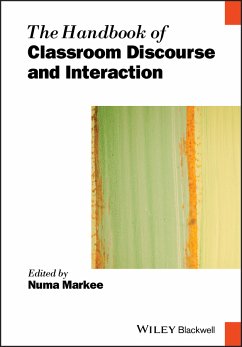
The Handbook of English Pronunciation (eBook, PDF)
Versandkostenfrei!
Sofort per Download lieferbar
53,99 €
inkl. MwSt.
Weitere Ausgaben:

PAYBACK Punkte
0 °P sammeln!
The Handbook of English Pronunciation presents a comprehensive exploration of English pronunciation with essential topics for applied linguistics researchers and teachers, including language acquisition, varieties of English, historical perspectives, accent's changing role, and connections to discourse, technology, and pedagogy. * Provides thorough descriptions of all elements of English pronunciation * Features contributions from a global list of authors, reflecting the finest scholarship available * Explores a careful balance of issues and topics important to both researchers and teachers * ...
The Handbook of English Pronunciation presents a comprehensive exploration of English pronunciation with essential topics for applied linguistics researchers and teachers, including language acquisition, varieties of English, historical perspectives, accent's changing role, and connections to discourse, technology, and pedagogy. * Provides thorough descriptions of all elements of English pronunciation * Features contributions from a global list of authors, reflecting the finest scholarship available * Explores a careful balance of issues and topics important to both researchers and teachers * Provides a historical understanding of the importance of pronunciation and examines some of the major ways English is pronounced today throughout the world * Considers practical concerns about how research and practice interact in teaching pronunciation in the classroom
Dieser Download kann aus rechtlichen Gründen nur mit Rechnungsadresse in D ausgeliefert werden.












